Living your best life abroad starts with this...
Maslow, Mental Health and Scott Morrison: What my first panic attack abroad taught me
“I think I’m having a heart attack.”
I gripped my chest as I watched Australian Prime Minister Scott Morrison say, “It’s time to go home.” He was addressing all struggling expats during the early chaos of the COVID pandemic.
I was 22, living in Australia on a working holiday visa that was about to expire. The world was shutting down. I was recently unemployed. Flights back to America were astronomical. I couldn’t afford to leave—but I wasn’t legally allowed to stay much longer either.
2019 was supposed to be my carefree year abroad, living my best life. Instead, it turned into a nightmare. I was stranded on the other side of the world, away from my family, with no income—and no guarantee I’d be allowed to remain in the country.
My thoughts started spiraling. My breathing grew shallow and short. My heart pounded out of my chest. My head felt light and dizzy. I genuinely thought I was dying.
In reality, I was having my first anxiety attack.
The hubris of being in my early 20s—thinking I was invincible to the world’s dangers—came back to bite me. I was, in fact, vulnerable. And very much afraid.
This was one of the scariest moments of my expat life, but it taught me something I’ve been unpacking ever since:
To have a fulfilling experience living abroad, you must first feel safe and secure.
Because if you don’t feel safe, you’ll never actually feel free to live your best life.
Instead, you’ll be in survival mode. Always on edge. One misstep away from unraveling. Teetering between living the dream and barely getting by.
The Cost of Living Without Safety
Looking back on six years abroad—especially these past ten months in New Zealand—my life has been a mix of magic and deep stress.
✨ On the magic side:
This past Christmas, my partner and I road-tripped around the North Island. We stayed in a hobbit house, camped beside seals, and hiked Mt. Taranaki to catch the sunrise. These moments are etched into my soul’s highlight reel.
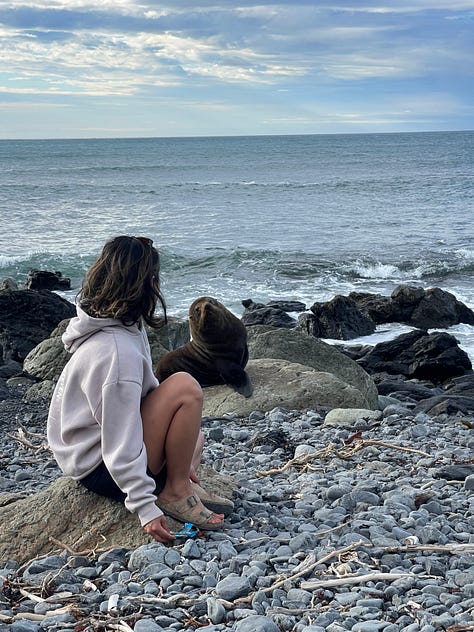
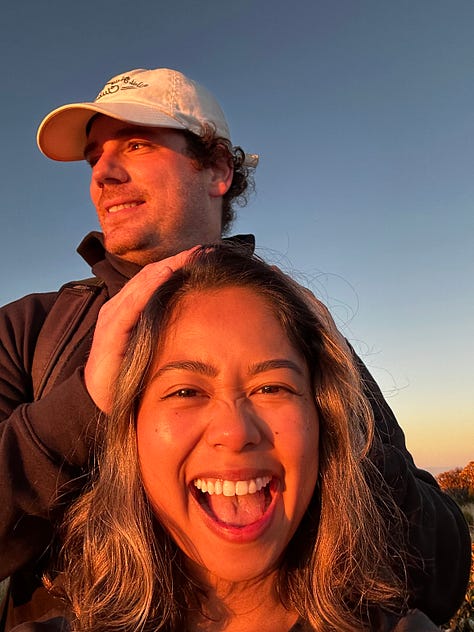
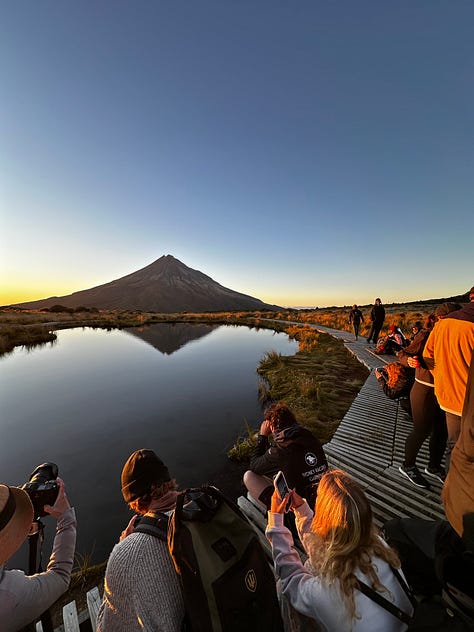
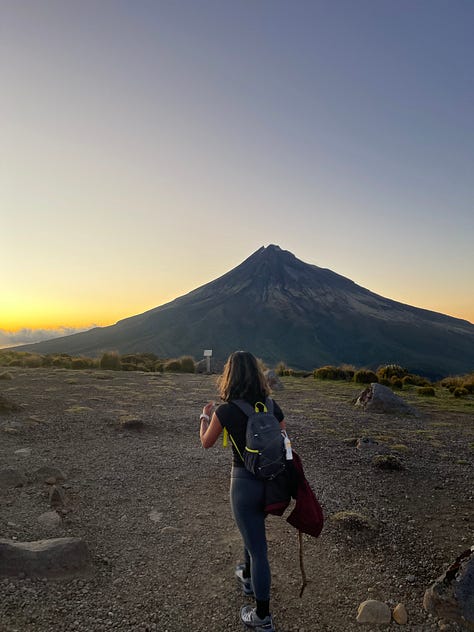
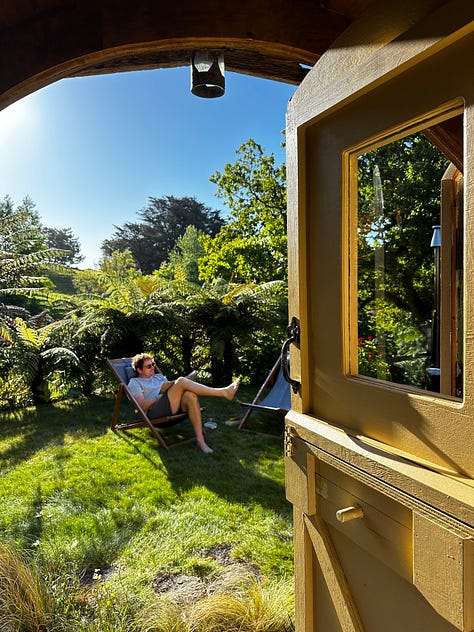
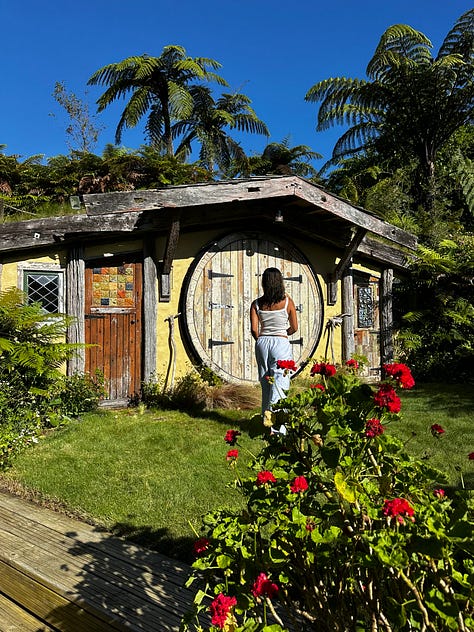
But behind the beauty, there’s been a quieter thread: chronic fight-or-flight.
Since that first panic attack, my nervous system has never fully exhaled. Even in joyful moments, there’s been a low hum of unease.
It’s this constant sense that I might have to pack up and go at any time. I plan for worst-case scenarios. I think in contingencies—plans A through Z—just in case.
When I tried to explain it to a non-expat friend, I said:
“Being an expat feels like building a life on quicksand. I just have to build fast enough not to get swallowed.”
Maslow’s Pyramid (But Make It ABA Core)
When I zoom out and look at it through the lens of Maslow’s hierarchy of needs, it all makes sense.
❌ No stable visa.
❌ No financial safety net.
❌ No long-term job or reliable support network.
No matter how hard I build, I’ll never be able to create the life of my dreams if the foundation isn’t solid.
You can’t live your best life abroad if you’re stuck in survival mode.
And honestly? I’d argue that “living your best life” is just modern speak for what Maslow calls self-actualization—the top of the pyramid.
People don’t move abroad just to fill their Instagram feeds with pretty pictures. We do it to expand, to explore, to become the fullest version of ourselves.
But here’s the catch: You can’t skip steps on the pyramid. You have to meet your basic needs before you can build your dream life.
Let’s break Maslow’s hierarchy down through the Another Broad Abroad lens. I’d even argue we should add “Visa” to Tier 2 (Safety Needs), because that piece can make or break your experience.
If you’re unable to secure your psychological and safety needs, making you constantly stressed, insecure, or uncertain, you’ll never make it to the top where you’re living your best life.
Trust me, I’ve tried. And all I got was more anxiety.
So what happens when you can’t seem to build those safety foundations?
Say you’ve been waiting for a visa for 6 months. Or you're living paycheck to paycheck with no financial cushion. Or your flatmates suck and make you feel unwelcome.
(Yes—these are all things I’ve been through.)
You end up with chronic stress, which leads to burnout.
According to The Good Expat Life, over 90% of global expats report experiencing stress, and 98% report symptoms of burnout.
Long-term stress can lead to:
Anxiety and depression
Brain fog and memory issues
Hormonal imbalances and reproductive challenges
Difficulty making decisions
Reduced immunity and energy
A warped sense of what’s “normal”
Eventually, we start to believe this is just the cost of the dream. But what if it doesn’t have to be? This is what we’ll unpack in the following newsletter— Part 2: How to Build Safety While Living Abroad.
Stay tuned 💌
This newsletter was inspired by recent events happening in my own life. I’m not going to lie, life has been pretty tough the last few weeks. In my last article I penned, I alluded to some news that’s really put me and my life abroad in a bit of a tailspin.
In short, I had been working for my NZ employer for 10 months with the promise of a work sponsorship. We got halfway through before they decided to pull the application, 2 months before my temporary working holiday visa expires.
Everyone that I have confided to about this visa situation has responded with “that’s f*cked”, “I’m so mad for you,” and “that’s such a dick move.”
In all instances, I agree. However, all the anger, pity, and disappointment in the world, won’t give me what I actually need: a feeling of safety and security. Here lies the motivation for writing this newsletter.
In these last few weeks, I’ve been thinking, “Where do I go from here?” As far as visas go, I have a solution. If all goes to plan, I won’t get deported (YAY) in June when my current visa runs out. I do have a plan B to stay in New Zealand which I’m thankful for, but being on the sh*t end of the visa stick twice now- once in Australia and again in New Zealand- has left me feeling emotionally exhausted and burnt out. And this is not a feeling I want for myself or any of you to experience. So, let’s just take this as a learning experience and make some helpful content out of it lol.
Also, I apologise for skipping last week’s newsletter. I decided to give myself a break from writing to sort my life out and give myself the mental health check I needed so I don’t burn out.
Despite my brief hiatus, ABA continues to grow thanks to the generous shouts from others who have shared this newsletter with their community. It blows my mind that there’s +130 of you guys who are now subscribed!! Thank you for being part of this journey. I don’t think I’ll ever get over the fact that people actually read my writing. Humbled. Honoured. Grateful.
That’s it for this edition.
I’d love to hear from you 👉 Do you relate to feeling stuck in survival mode ? What’s helped you feel safe while living abroad?
Answer in the comments!
Catchya next week.
Muah 💋
Juvi


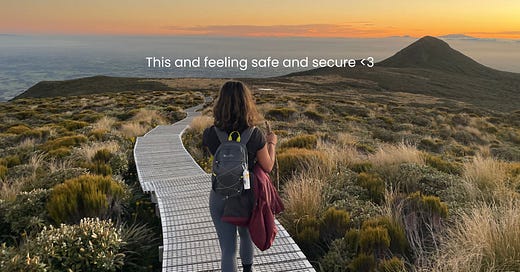



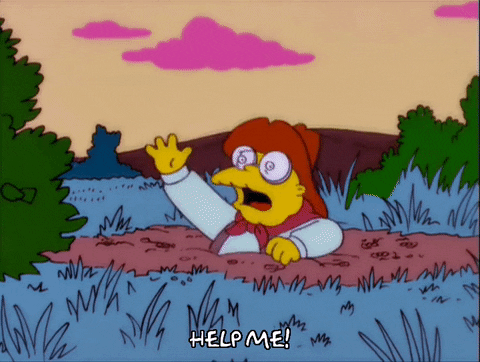

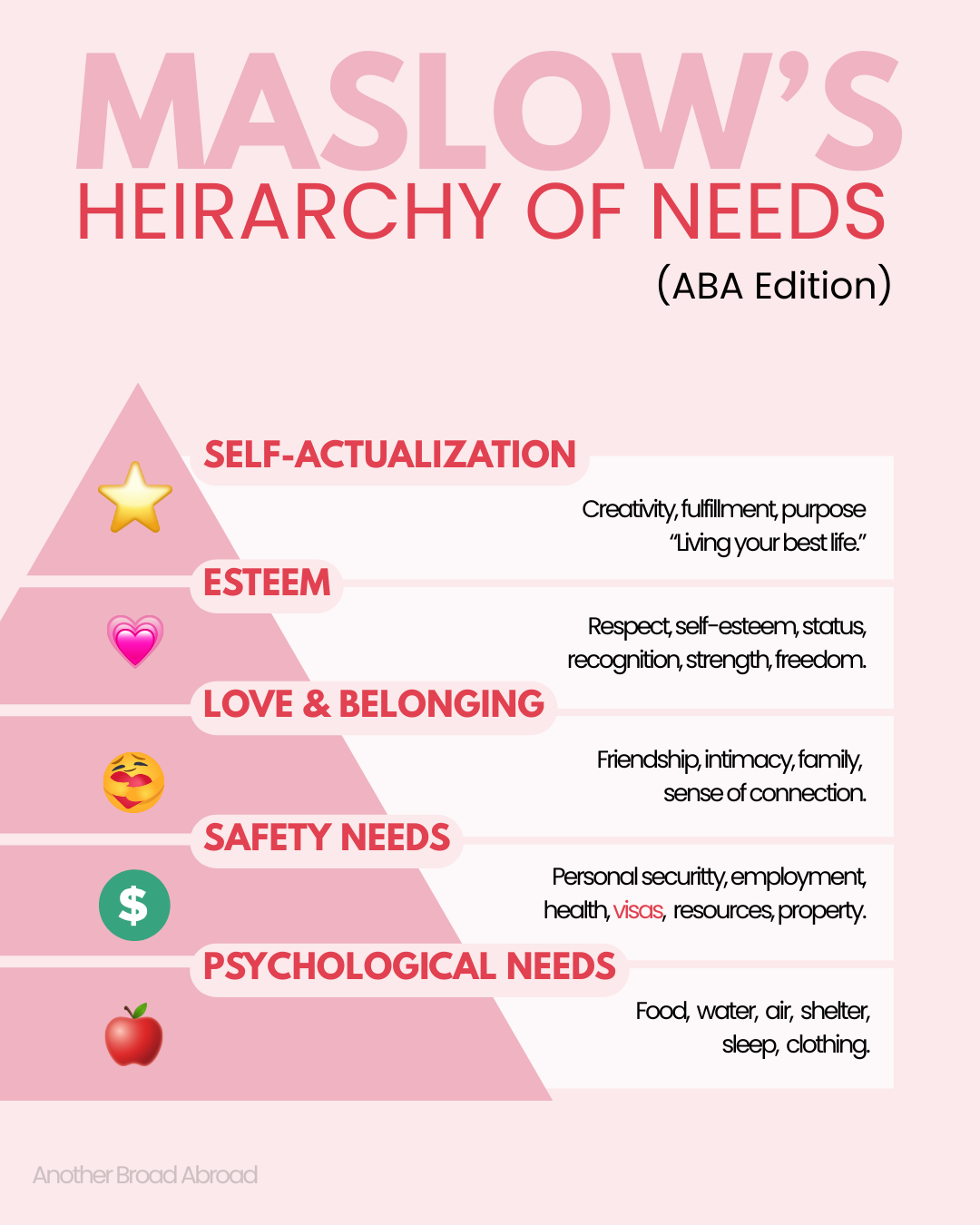

Thanks for this piece and sharing your experiences. I have also been in that struggle of insecurity many times over 20 years and 10 countries. At one point, I lived in Myanmar and had to renew my visa every 70 days for 5 years, while paying my flat rent yearly in advance - that was so much unrest - and I didn't always know how to manage it. The issue I find now is that once your career is tied up in an international career, it is hard to find the right stable situation. Being at home for a few years during Covid helped. And I have found better ways to manage this unrootedness - but it is something that I wish I had known more about when I was younger and starting out on this journey. Good luck with your next steps!
Thank you for your lovely words 😊 and you're so right - it sucks when we're going through those difficult moments and feel like our focus should be elsewhere.. exploring freely without the stress and worries. But in retrospect, if we take these moments as a chance to learn and grow, it may even benefit us in the long run. I'm still quite new on Substack but I'll be sharing more resources in the coming weeks. This weekend, I'll record another short meditation to reconnect with the 'inner resource' - that safe space that we can always return to when feeling overwhelmed and stressed (this has been tested in some reputable studies, including military communities). For anyone interested in meditation, this would be a good basis to start from. I aim to make my newsletter a mix of information and short exercises, so that the actual practice doesn't fall short. But I'm always thankful for any feedback and new ideas 😊